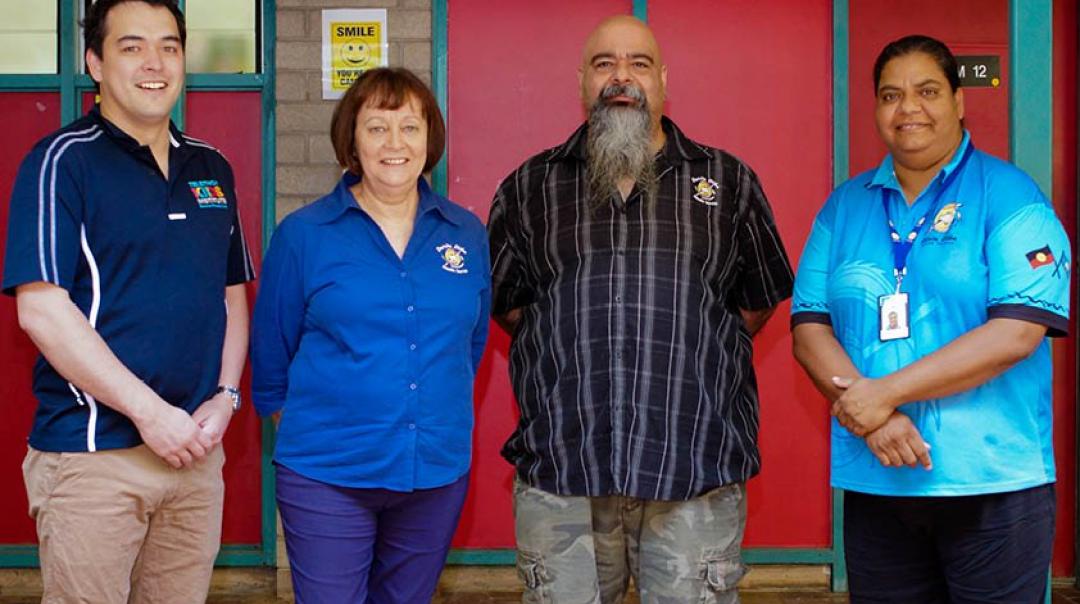
New RHD research collaboration with Danila Dilba Health Service and Telethon Institute
The Telethon Kids Institute and Menzies School of Health Research have joined forces with Danila Dilba Health Service (DDHS) to look at improving treatment for young people living with rheumatic heart disease (RHD).
Pictured Above: Dr Rob Hand with Danila Dilba Health Service CEO Olga Havnen, General Manager of Darwin Clinics Malcolm Darling and Indigenous Outreach Worker/Recalls Officer Margaret O'Brien
Reproduced from Telethon Kids Institute Website First published Thursday 8 February 2018
Based in Darwin, DDHS is running the Penicillin Levels for Rheumatic Heart Disease (RHD) Study using similar methods to a study completed by the Telethon Kids Institute in Perth last year.
Expected to run over six months, the study will recruit up to 30 children and adolescents living with RHD and assess the effectiveness of the monthly penicillin injections given to prevent further recurrences of Strep A infections and acute rheumatic fever. This regular treatment is vital as repeated infections and attacks of rheumatic fever during childhood and adolescence can cause long-term damage the valves in the heart, leading to RHD and life-threatening heart failure. The results of the study will help determine how well children and adolescents’ bodies retain penicillin over a month, and will keep track of any breakthrough infections and immune responses to Strep A.
Telethon Kids Institute researchers’ Dr Joe Kado and Dr Rob Hand visited the DDHS team in January and were excited with the progress of the study.
“The research being undertaken by DDHS provides an important opportunity to compare findings from a different population of children and see if the results from the Perth cohort holds true for another group living in a more remote environment,” said Dr Kado.
“Previous studies have shown significant variability in blood levels of penicillin, leaving patients susceptible to potentially dangerous Strep A recurrences, so if we can pin point the longevity of penicillin in the blood system, we can ensure appropriate treatment is given at the time it is needed most.”
“Collaborating with DDHS also provides us with the chance to establish a great relationship between a number of organisations all dedicated to improving the lives for children living with RHD, sharing knowledge and ideas to maximise research outcomes,” said Dr Kado.
If you would like more information about the Penicillin Levels for Rheumatic Heart Disease (RHD) Study, please contact joseph.kado@telethonkids.org.au